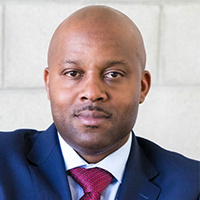Lakeview RICO Act Lawyer, California
Sponsored Law Firm
-
 x
x

Click For More Info:
-
Lessem, Newstat & Tooson, LLP
3450 Cahuenga Blvd W Unit 102 Los Angeles, CA 90068» view mapCriminal Defense Your Fight Is Our Fight.
Our team is ready to represent individuals in need of strong, aggressive personal injury or criminal defense as it pertains to one's mental health.
800-805-4781
Not enough matches for Lakeview RICO Act lawyer.
Below are all Lakeview Criminal lawyers.
Andrew M. Rosenfeld
✓ VERIFIEDLawsuit & Dispute, Criminal, Divorce & Family Law, Bankruptcy & Debt, Federal Appellate Practice
Robert Allan Davis
Litigation, Estate, Criminal, Business
Status: In Good Standing Licensed: 32 Years
Lindsey Michele Burcham
Federal Appellate Practice, Family Law, Criminal, Constitutional Law
Status: In Good Standing Licensed: 19 Years
David Akintimoye
Bankruptcy & Debt, Tax, Criminal, Real Estate
Status: In Good Standing Licensed: 21 Years
Akindele David Akintimoye
Estate, Divorce & Family Law, Criminal, Bankruptcy, Accident & Injury
Status: In Good Standing Licensed: 21 Years
 J. Tooson Los Angeles, CA
J. Tooson Los Angeles, CA Practice AreasExpertise
Practice AreasExpertise

